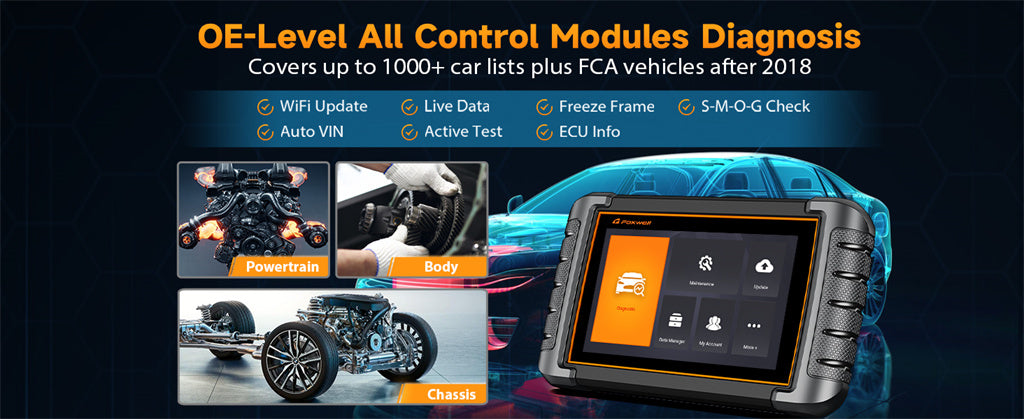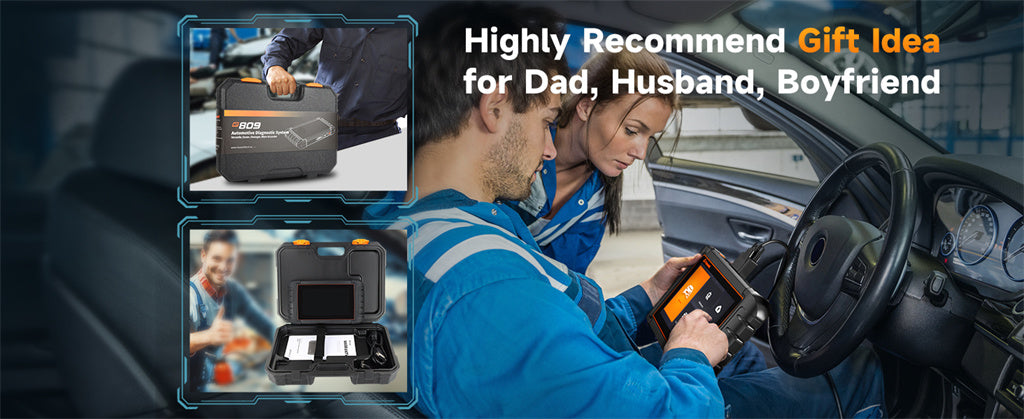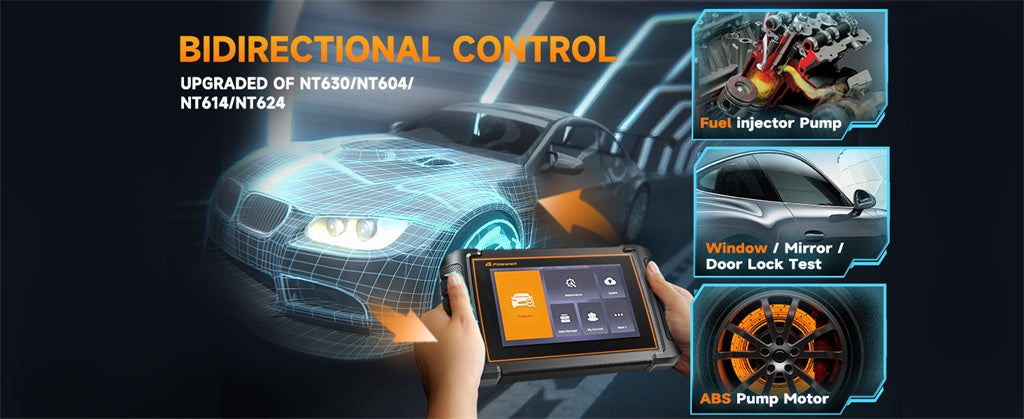At a time when digital technology and automotive engineering converge, OBD2 scanners have become an indispensable asset to both car owners and mechanics alike. Not only do these tools demystify car diagnostics for owners, but they also give them the knowledge to better comprehend their vehicles. But why do OBD2 scanners play such a pivotal role in automotive diagnostics?
What Is an OBD2 Scanner?
An OBD2 scanner is a sophisticated tool designed to interface directly with a vehicle's computer system and access its computer language in a human-understandable format. When connected to the OBD2 port (usually located under the dashboard), the device reads and interprets data sent by the vehicle's sensors or systems.
OBD2 scanners go beyond reading trouble codes; they also monitor real-time data such as engine temperature, fuel system status, and more to provide a comprehensive view of a vehicle's operational state - making them invaluable tools for diagnosing problems and optimizing performance.
OBD2 differs significantly from its predecessor OBD1, which utilized manufacturer-specific codes and connectors, in that it offers universal coding and connector systems that make diagnosing issues across a wide variety of vehicle makes and models manufactured post-1996 much simpler. Due to these laws mandating its universality, an OBD2 scanner can effectively diagnose problems on any number of makes and models manufactured since 1996 with just one scan.
Transition From OBD1 to OBD2
-
Origin of On-Board Diagnostics (OBD)
The concept of onboard diagnostics dates back to the 1980s when automotive manufacturers started installing electronic systems to monitor and control engine functions. Known then as OBD1, these early systems primarily focused on emission control. Still, they laid the groundwork for today's sophisticated diagnostic systems - marking the transition from mechanical cars to computerized machines.
-
OBD1 and OBD2 Standards Progress Forward
OBD2 marked an enormous change in automotive diagnostics when introduced in the mid-1990s. OBD2 brought with it significant advancements, such as:
Standardization:;OBD2 introduced a universal connector and standard diagnostic trouble codes (DTCs) across all vehicles, making it simpler for mechanics and car owners to identify vehicle issues without needing brand-specific tools or knowledge.
Enhance Diagnostics: OBD1 systems were limited in their ability to monitor the engine and certain other components; OBD2 can now provide more thorough diagnoses across many vehicle systems, such as transmission, brakes, and airbags.
Real-Time Monitoring: OBD2's ability to provide real-time vehicle performance data and sensor operation information allows for more precise diagnostics and efficiency gains, going beyond simple problem identification.
Impact on Vehicle Maintenance and repair
OBD2 technology has revolutionized vehicle maintenance and repair, giving car owners access to information previously only accessible to professionals. Furthermore, it plays an essential role in environmental protection by ensuring vehicles operate efficiently within emission standards.
How Does an OBD2 Scanner Function?
Connection Process: This involves physically connecting the scanner to the vehicle via its OBD2 port, followed by communication processes between it and its onboard computer, retrieving data, and translating it into usable codes.
Interpreting Codes: An explanation of various codes (P-codes for powertrain, B-codes for body) and how they can help diagnose issues with vehicles.
Types of OBD2 Scanners
OBD2 scanners come in various forms to address various diagnostic needs - from casual car owners to professional mechanics. Here's a closer look at the main types of OBD2 scanners:
-
Basic Code Readers
Basic OBD2 scanners are among the simplest and most cost-effective devices available to car owners, designed to read and clear basic diagnostic trouble codes (DTCs) from engine systems as well as other vehicle systems. Basic code readers make an ideal solution for those wanting a quick way to identify what might be ailing their vehicle before taking it in to be serviced; they offer limited diagnostic data and, therefore, lack comprehensive vehicle insights.
-
Professional OBD2 Scanners
At the other end of the spectrum are professional-grade OBD2 scanners. These devices offer extensive diagnostic capabilities for vehicle systems like ABS, airbag, transmission, etc, as well as live data streaming and streaming for system tests, programming system parameters for newer vehicle models, etc. Additionally, they come equipped with Wi-Fi/Bluetooth connectivity, touchscreen displays, and software updates so mechanics and automotive enthusiasts can keep pace with changing technologies and stay ahead. At the same time, these scanners may represent a considerable upfront investment, but they provide invaluable diagnostic capabilities!
-
Bluetooth Adapters
Bluetooth OBD2 adapters offer an intermediary solution between basic code readers and professional scanners, enabling wireless data transmission from vehicle OBD2 ports to a smartphone or tablet using a companion app to display diagnostic information. They're compact, convenient, and offer various functionalities depending on which app is being used, from basic code reading through mileage tracking and real-time performance monitoring capabilities. Bluetooth OBD2 adapters have become increasingly popular due to their convenient functionality while on-the-go diagnostic capabilities - becoming a convenient alternative for code readers or scanners alike!
Benefits of Using an OBD2 Scanner
An OBD2 scanner provides far more benefits than just turning off a check engine light. Here are a few key ones:
-
Empowering Vehicle Owners
OBD2 scanners make vehicle diagnostics less arduous for car owners by giving them access to direct insights into the health and performance of their vehicles, making it easier to recognize issues without immediately needing professional intervention. This empowerment can lead to more informed discussions with mechanics as well as prevent any unnecessary repairs from taking place.
-
Facilitating Preventive Maintenance
OBD2 scanners enable proactive Maintenance by monitoring real-time data and retrieving historical codes, providing vehicle owners with an opportunity to identify minor issues before they become more serious repairs, saving both time and money, while prolonging vehicle lifespan.
-
Cost Savings
An OBD2 scanner can lead to significant cost savings over the life of a vehicle. By diagnosing codes yourself and bypassing mechanics' diagnostic fees, you can make better decisions on when and where to service your car; additionally, understanding specific problems can prevent being overcharged for simple fixes.
-
Enhancing Performance
OBD2 scanners provide performance enthusiasts with an invaluable way to monitor various parameters in real-time, such as fuel economy, engine temperature and O2 sensor data. This data can then be used to optimize performance by changing driving habits or even increasing fuel economy.
See also:How to Choose the Perfect OBD2 Scanner for Your NeedsConclusion
Summing up key points and emphasizing the value of having an OBD2 scanner as part of one's automotive toolkit. An OBD2 scanner can provide essential assistance with DIY diagnostics, preventive maintenance, or a better understanding of your car - an invaluable asset indeed!
FAQs
What is an OBD2 scanner?
An OBD2 scanner is a tool that plugs into your car’s onboard diagnostics port to read information from the vehicle’s computer. It can identify issues by reading codes sent by the car's sensors and monitor real-time data for various vehicle systems.
How do I know if an OBD2 scanner is compatible with my car?
If your car was manufactured after 1996, it likely supports OBD2. You can confirm this by checking for a standardized OBD2 port, usually found under the dashboard.
Can I use an OBD2 scanner to fix my car’s problems?
While an OBD2 scanner can diagnose problems by providing error codes and monitoring vehicle performance, fixing the car depends on the nature of the problem. Some issues might be simple and can be resolved by a savvy car owner, while others may require professional mechanical services.




Leave a comment
This site is protected by hCaptcha and the hCaptcha Privacy Policy and Terms of Service apply.